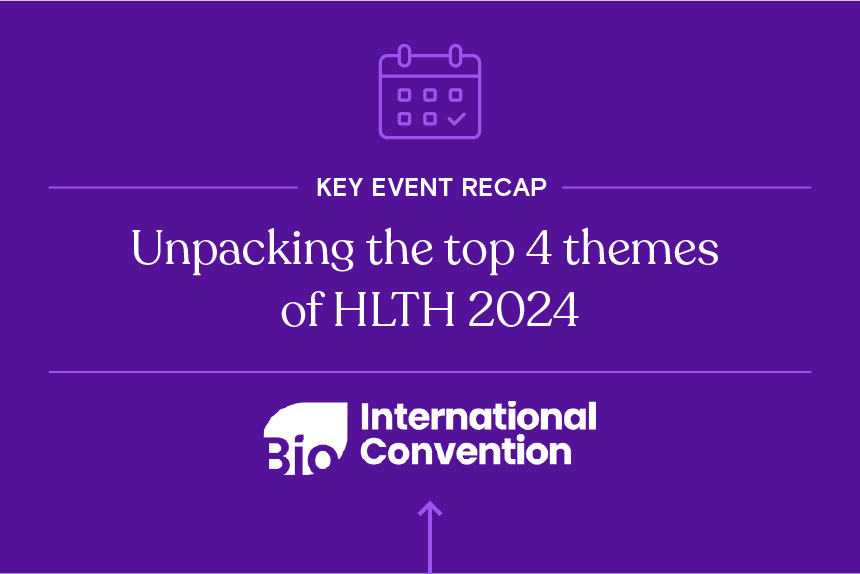Value has, and always will be, the key to opening access to HCPs
There’s a good reason why the average interaction between a sales rep and a physician is close to three minutes, while the average interaction between a Medical Science Liaison (MSL) and a physician is closer to 60 minutes. Top healthcare professionals are willing to spend this significant chunk of time with MSLs – even as more than 50% of all HCPs now refuse to see sales reps at all – because the engagement brings them value.
It’s that simple – or is it?
Clearly, providing value is critical, but learning what is considered valuable to individual HCPs who are busy, sought-after leaders in their therapeutic areas is not as apparent. MSLs add value to engagements with digital tools, but that is just the beginning, especially as the COVID-19 pandemic has caused digital to become standard rather than the exception.
Even digital interactions lose their luster when the information provided is repetitive, old, or not directly and immediately relevant. Likewise, piling on information and data doesn’t necessarily translate into a valuable engagement. In fact, experts find greater value in conversations that cut through the clutter and mountains of data, and instead, distill it into meaningful insights. They want the key data points in a format that they can quickly reference, share, and use to articulate to their patients effectively.
Virtual reality can sometimes help here, especially when trying to illustrate the mechanism of action for complex, novel treatments. Yet, the goal is to provide a valuable information exchange that is fair and balanced, creating a trusted relationship that encourages an ongoing, two-way conversation. Experts need unbiased information that they can trust. In today’s environment of unmanageable amounts of data, complex science, and more but smaller product launches, physicians want to make sure that no commercial considerations have influenced the information. Just the facts, please.
Know thy provider
Personalizing the relationship by tailoring the information provided to each individual provider is how you cut through the noise and capture the expert’s attention, ensuring long-term access.
To do this, field medical teams need to learn where every provider is in their learning journey about the latest treatments. Pharmaceutical products are more complex and personalized and therefore require a lot more explanation than yesterday’s blockbuster drugs. Rapid advances in genomics as well as a growing number of orphan drugs and personalized treatment approaches leave HCPs with a great need for detailed medical and scientific information that highly trained MSLs are able to provide. One example of this trend is oncology – an estimated 73% of cancer drugs currently in development may be tailored to a person’s genetic profile.
For some physicians and some treatments, MSLs may need to start with the basics and, in other cases, MSLs should provide more sophisticated education. It can help to find out who the experts’ patients are and where they are in their treatment journey, and then provide information about the new treatment that aligns with those patients’ disease state.
With all of the new classes of drugs and the increased focus on rare diseases, there is a real opportunity for medical to impact patients by educating experts in their therapeutic areas. MSLs will need to deliver relevant, honest scientific data while also demonstrating the value of treatments to justify their price tag. Understanding the access landscape, therefore, is as important as understanding the science.
The role of the MSL has expanded over the years, but the recent pandemic has heightened the MSL’s importance. With COVID-19, there are so many unknowns and co-morbidities that the science and research is ever changing, overwhelming busy HCPs. Trusted MSLs who provide information or resources are immensely valuable and could help lead to a new treatment or vaccine. In addition, with a drop-off of HCP attendance at medical meetings, MSLs may sometimes be the one current resource for experts.
Regardless of what the future looks like for MSLs, success will always comes back to whether the information they provide is valuable to the person receiving it. Take the time to develop a one-to-one relationship and zone in on what experts need to know for their current patients rather than doing a data dump and overwhelming them with information that may not be immediately relevant. Maintain a high level of scientific rigor, relentlessly stripping away commercialism. Finally, leverage digital technologies to enhance engagements and better demonstrate product efficacy not to put on a show.
It’s all about value.





